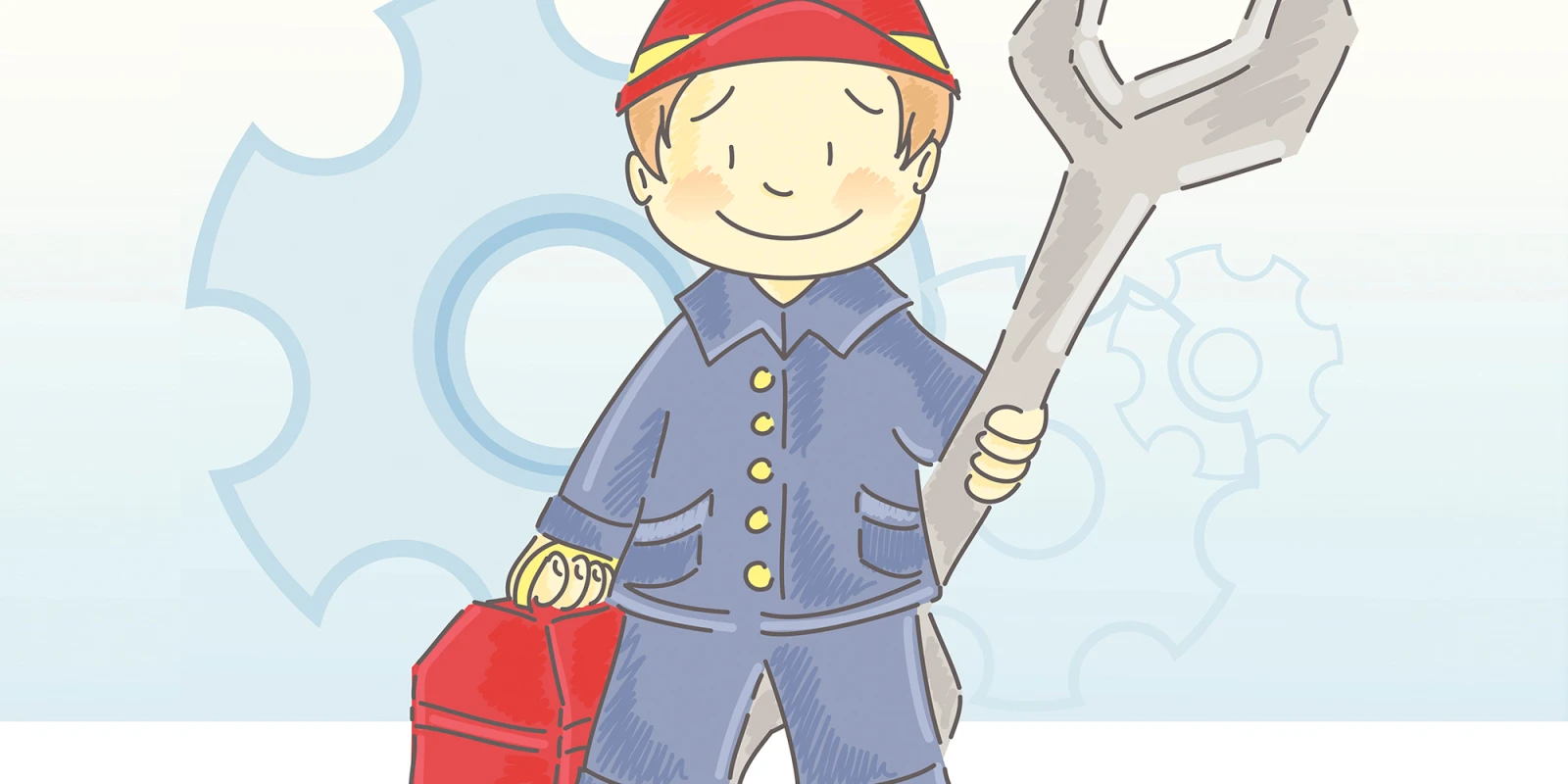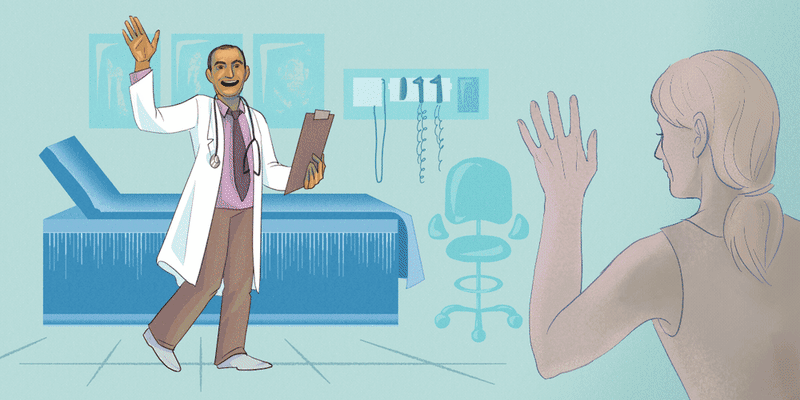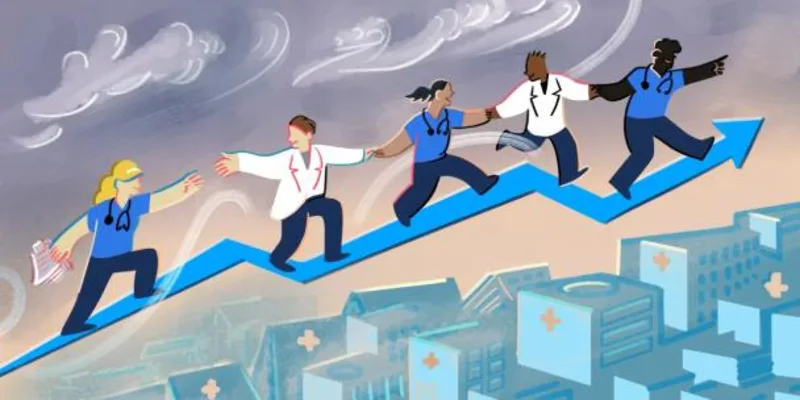
I’ve been working nights lately, and my little ones have had a hard time with me not being home at bedtime. They recognize my “doctor mommy clothes,” and they always start getting antsy when the scrubs come out. To help with the transition, I’ve been trying to explain to them that it’s important to me to help people feel better, and that sometimes it has to be mommy’s turn to do this while everyone else is sleeping. Then, I go through our routine of reminding them that I never want to leave them, I love them very much, and that I will always come back. Even though we have this routine, I haven’t been quite sure how much is sinking in.
Tonight after dinner, my four-year-old started packing toys into a large bucket. He seemed very purposeful, so I asked him what he was doing. He looked at me with a very serious expression, walked over, put his hand on my knee, and said: “Mommy, it’s time for me to go to work. I’m going to the hospital to help people. But don’t worry, I’ll always come back.” And then this boy, who is a human tornado at baseline, finished packing his bucket, walked over to the front door, and sat quietly, “waiting for the bus.” Clearly, at least some of what we had been talking about had been getting through.
After about ten minutes of quiet (which is usually very suspicious in my house), he walked back over. “Mommy, I’m home from work!” I gave him a big hug and told him how glad I was that he was home. Then, I asked him about the things he took with him in his bucket. He reached in and grabbed a wooden wrench, hammer, and screwdriver. “I brought my tools!” he told me. I asked him why he chose these things to take to the hospital instead of, for example, a stethoscope, which he has loved using in the past.
His reply: “I brought them in case the whole world is broken and I need to fix it.”
This hit a nerve, probably because it touches on how I’ve been feeling.
Many of us who work in healthcare function on a significant foundation of idealism, and we may feel as though we’re responsible for fixing all of the broken things we see. Despite our best efforts, though, there are many things we can’t fix. We face a multitude of small “failures” every day, and it can feel like we keep missing footholds while scaling a wall in the dark.
I know I’ve been a bit off-balance lately. The adjustment to residency has not been completely smooth (and I suspect I’m not alone in this). Sometimes I come home and collapse on the couch, exhausted from the effort of trying to move what seems like the smallest obstacle that just won’t budge. I’m also in the ED this month, where I’m readjusting to being on the front lines of all the terrible things that happen daily in my own backyard, as well as working on a schedule that doesn’t go with our natural flow--hence the extra challenges with the little ones. Then, to top it off, when I turn on the news, it seems as though the rest of the world is blanketed in hate and violence. Taken separately, these things might be a bit more manageable, but together, they can seem overwhelming.
I thought I was doing a reasonable job of keeping the stress that I’m carrying from spilling over, but perhaps I’m really asking for an extra pair of hands to help carry the burden, and my son picked up on that. In fact, maybe he’s reminding me that I need to pay better attention to when I need to ask for help. To be clear: there is never any shame in needing someone to lean on or someone to help you carry the weight on your shoulders. At the end of the day, you can’t force yourself not to experience the negativity associated with “failure.” You can, however, try to identify it -- which is likely easier to do with someone to help you--so you can work on finding a way to prevent it from living in your veins and slowly poisoning your outlook.
In my case, I’m lucky enough to have a sweet four-year-old standing next to me, trying to help me hold up the world with a set of wooden tools. (He may also use that screwdriver to take apart his brother’s toys, but we’ll leave that be for now.) In doing so, he’s helping me regain some perspective. It’s no easy feat to find a tenable balance between idealism and practicality, but it is important to reflect on where you’re standing from time to time to make sure you’re not tilted toward one side or the other for too long. If I can work on finding a better balance with a dose of wisdom from my little one, then I’ll grab tight to that and try not to let go.
So, what are we to do when the whole world is broken and we don’t know if we can fix it?
Some days, maybe it’ll have to be enough just to pack up our tools and wait for the bus. And, if we remember to ask, maybe we’ll be lucky enough to have someone to ride with us.
Amy Blake is an internal medicine resident and a 2018-2019 Doximity Author. The views expressed herein are solely those of the author and do not necessarily represent the views of any organization with which she is or has been affiliated.







